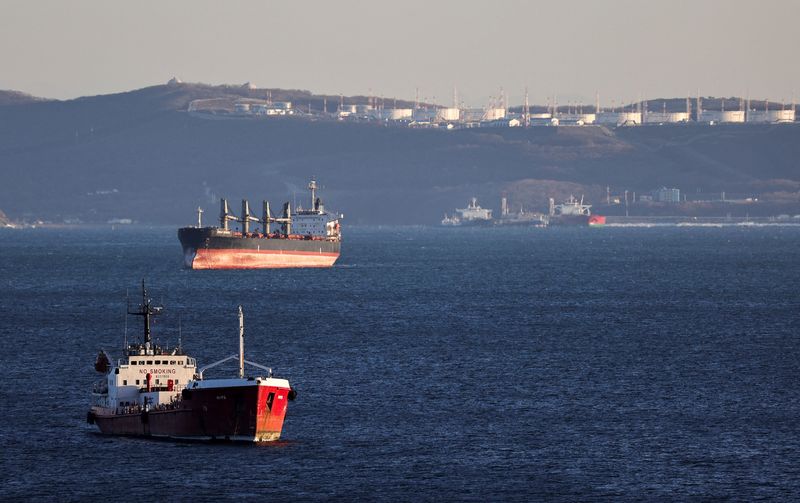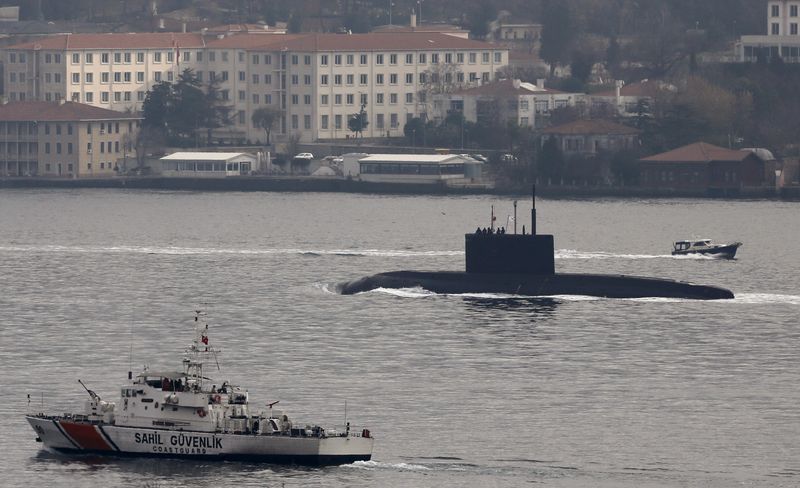By Vladimir Soldatkin
MOSCOW (Reuters) - Russia's government said on Friday it had lifted a ban on pipeline diesel exports via ports, removing the bulk of restrictions installed on Sept. 21.
The restrictions for gasoline exports are still in place.
Diesel is Russia's biggest oil product export, at about 35 million tonnes last year, of which almost three-quarters were shipped via pipelines. Russia also exported 4.8 million tonnes of gasoline in 2022.
Global oil prices reversed early gains to decline after the news. As of 0730 GMT, Brent futures nudged down by 0.08% to $84.01 per barrel and were on track for their steepest weekly decline since March.
"The government lifted restrictions on exports of diesel fuel delivered to seaports by pipeline, provided that the manufacturer supplies at least 50% of the produced diesel fuel to the domestic market," the government said in a statement.
The restrictions on fuel exports from Russia, the world's top seaborne exporter of the fuel just ahead of the U.S., have bolstered global prices and forced some buyers to scramble for alternative sources of gasoline and diesel.
After the European Union banned Russian fuel imports over Moscow's actions in Ukraine, Russia diverted Europe-bound exports of diesel and other fuels to Brazil, Turkey, several North and West African countries, and Gulf states in the Middle East.
Gulf states, which have their own major refineries, re-export the fuel.
Russia has been tackling both shortages and high fuel prices in recent months, which especially hurt farmers during the harvesting season.
"The authorities' decision will help solve both problems, but will not solve them completely," Moscow-based BCS brokerage wrote in a morning note.
"We still expect tax changes to be introduced soon that will remove most or all of the arbitrage opportunities for independent traders to gain export profitability."
Since the ban was introduced, wholesale diesel prices on the local exchange have fallen by 21%, while gasoline prices are down 10%.
That has not yet translated into the same scale of retail price decline, though Russian Deputy Prime Minister Alexander Novak, President Vladimir Putin's point man on the oil business, has said that the ban had started to yield positive results.
The Federal Anti-Monopoly Service (FAS) said on Thursday that it had sent instructions to oil companies ordering them to cut oil products prices.
The government also on Friday hiked fuel export duty for resellers, which do not produce the fuel, to 50,000 roubles ($495.63) per tonne from 20,000 roubles and reinstalled subsidies, or damper payments, for oil refineries in full starting from Oct. 1.

"The government is quelling attempts by resellers to purchase fuel in advance for subsequent export once the current restrictions are lifted. This also prevents them from exporting... fuel under the guise of other products," it said.
($1 = 100.8825 roubles) (This story has been refiled to change the picture)
